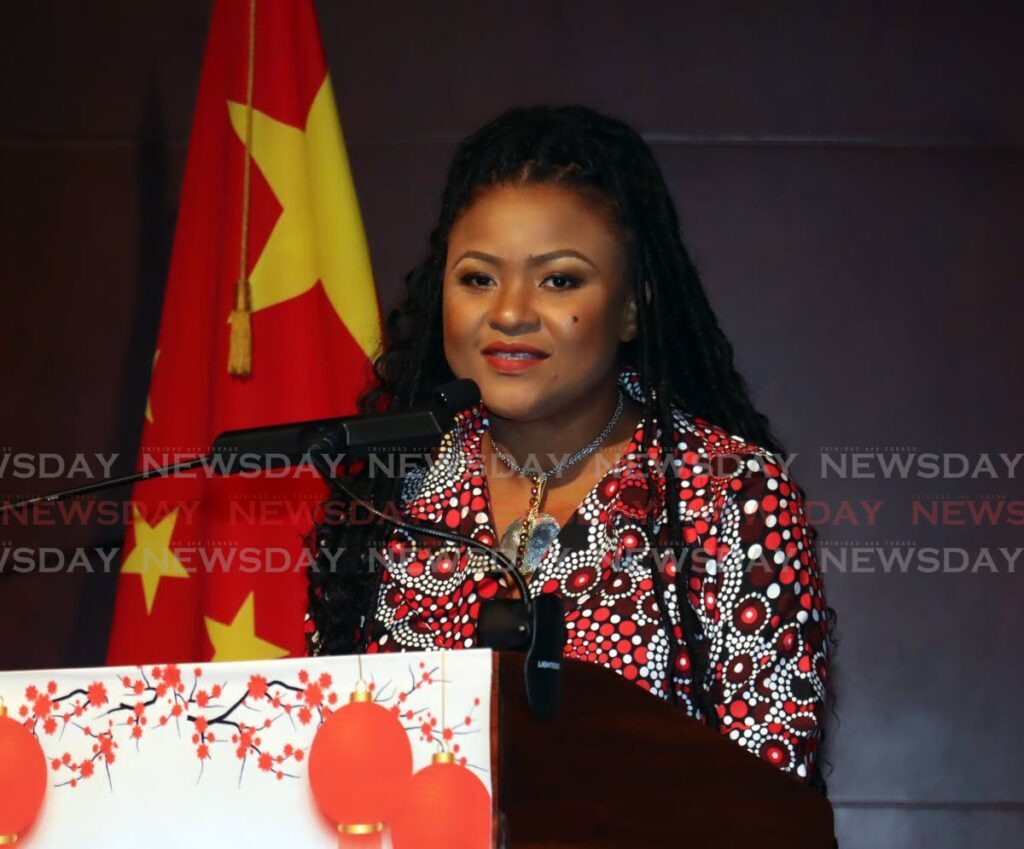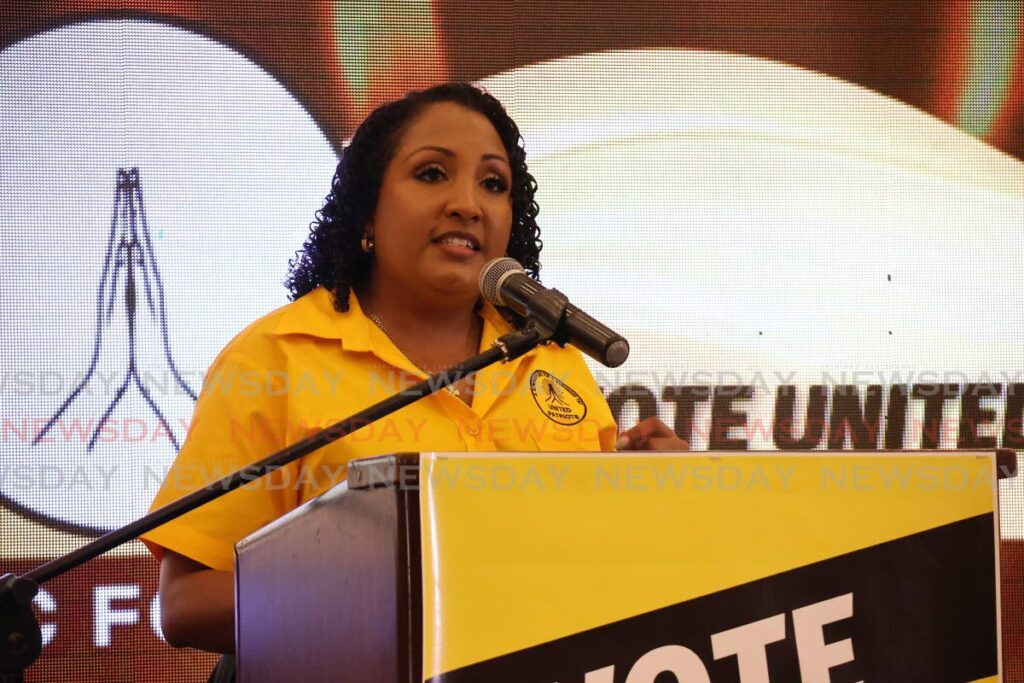Small decline in SEA performance

EDUCATION Minister Dr Nyan Gadsby-Dolly on June 27 welcomed the results of this year’s Secondary Entrance Assessment (SEA) Exam as “steady,” but Tabaquite MP Anita Haynes-Alleyne said this view was “overly optimistic.”
Haynes-Alleyne worried about the fate of low-scoring pupils now facing entry to secondary school.
The results showed the average pupil scoring a modest 50.7 per cent in maths, on par with 50.4 per cent last year and well up from 41.9 per cent in 2022.
English showed two sharply divergent trends. On one hand the English language arts writing (“essay”) average score rose significantly to 59 per cent from 53.4 per cent last year and 44.3 per cent in 2022. However, the English language arts (“comprehension”) score fell substantially to 53.4 per cent, from 61.6 per cent last year (and 44.3 per cent in 2022.) All three bands of pupil performance saw a decline, but it was very slight and less than one per cent.
Firstly, the number of top pupils (scoring over 90 per cent) fell to 1.42 per cent from 2.11 per cent last year (and 0.47 per cent in 2022). The number of reasonably good pupils (scoring over 50 per cent) dropped to 57.91 per cent from 58.06 per cent last year (and 37 per cent in 2022). The number of low performing pupils (scoring under 30 per cent) worsened slightly to 14.39 per cent from 13.55 per cent last year (compared to 27.81 per cent in 2022.)
A ministry statement said mean scores in 2024, when compared to 2023 and 2022, showed “a generally encouraging trend” with regard to student performance.
The similarity of the students’ performance in the past two years showed a “steady and stable recovery” from the effects of covid19, the statement said.
The ministry said it continued to monitor pupil performance and provide the Remedial Education Programme in 80 primary schools of focus. This programme provides the After School Support Education Programme, plus dedicated school social workers, guidance officers, special education officers, and learning support assistants.
“In 50 per cent of the 80 primary schools of focus, there has been an increase in the average weighted score of the students. Also, in 45 per cent of those schools, there was a decline in the percentage of students scoring 30 per cent and lower in SEA. This adds credence to the efforts of the Remedial Education Programme of the ministry, which has been approved to continue in both primary and secondary schools of focus until 2025/26.”

Congratulating SEA pupils, the ministry reminded their parents the Secondary Vacation Revision Programme, starts at 21 centres across Trinidad on July 15.
“The Ministry of Education urges parents of all eligible students to ensure that their children attend this programme, which is designed to provide support for a successful transition from Primary to Secondary School.”
Details are available via the ministry online.
Gadsby-Dolly, via WhatsApp, welcomed the results.
“The SEA 2024 results have shown a general stability when compared with those of 2023, with small declines in some areas and small increases in others.”
She said this showed pupils on a steady path of recovery from the learning loss due to the pandemic.
“Notable is the level of improvement in SEA performance at the 80 Primary Schools of Focus. We have been investing more resources in these schools, and the improvement is a validation of those efforts, which will continue for the next 2 academic years.”
Gadsby-Dolly spoke to reporters at an evening function on June 27.
“The major thing is to analyse the results and see where we have the difficulty.”
She said an assessment of pupil results last years had shown challenges in some strands of mathematics and English language.
“So we have given that report to the schools and done some training with teachers (via) the Curriculum Division to ensure teachers are better able to impact those particular areas. We are trying to use all the information to be able to ‘target.' Because just saying they scored lower in the English is one thing, but where exactly are the issues?”
She said data will be used to better prepare the teachers and in turn pupils.
Asked if the vacation remedial programme was efficacious given its cost, she said it was a small part of a wider remedial effort in 80 primary and 20 secondary schools.
Gadsby-Dolly said, “It’s not just that system. It is learning support systems, it is training for the teachers in math and English. It is also providing more student support services to assist with the socio-economic problems that affect students that result in low performance.
“So it is an overall package we are doing and we are seeing year upon year an overall increase in the performance of those students.”
She said some schools must be looked at to see why improvement was not sufficient. “But we always knew this was not a magic wand.”
Haynes-Alleyne congratulated pupils who wrote the SEA. She told Newsday results improved from 2022 to last year, but that had not been sustained into 2024. Haynes-Alleyne said the results showed a higher percentage of pupils scoring under 30 per cent
Saying there was a place for everybody to enter secondary school, she nonetheless wondered if low-scoring pupils would receive adequate support, especially if they were placed en masse in certain schools.
“If you are going into secondary school without competency, you will find some difficulties.” She warned of school violence and pupils dropping out.
Haynes-Alleyne said existing programmes must be assessed.
“Understand what we are doing at standard three and four levels. Standard five is a short time to adjust the sails.”
Saying the vacation remedial programme was undersubscribed last year, she wanted to know what was being done to correct that this year.
Reacting to the minister’s remarks about the results holding steady, Haynes-Alleyne said, “It is not sufficient to say we are not getting worse.”
She said the results were not as good as last year. She said she did not want to get caught up in just the numbers, but rather to use them as an assessment tool.
“Let the ministry be proactive and data-driven in what they are doing.”
Haynes-Alleyne said a slight drop in results meant the proverbial sails must be readjusted. “Look at the numbers. What is it telling us about the student population, and the need for input factors?”
Haynes-Alleyne wondered at the impact of the Teaching Service Commission's not filling vacancies, substitute teachers struggling to get their pay cheques and cuts in the ministry’s Student Support Services Division.
The House of Representatives will continue its debate on June 28 on Haynes-Alleyne’s private motion on the state of education.

Comments
"Small decline in SEA performance"